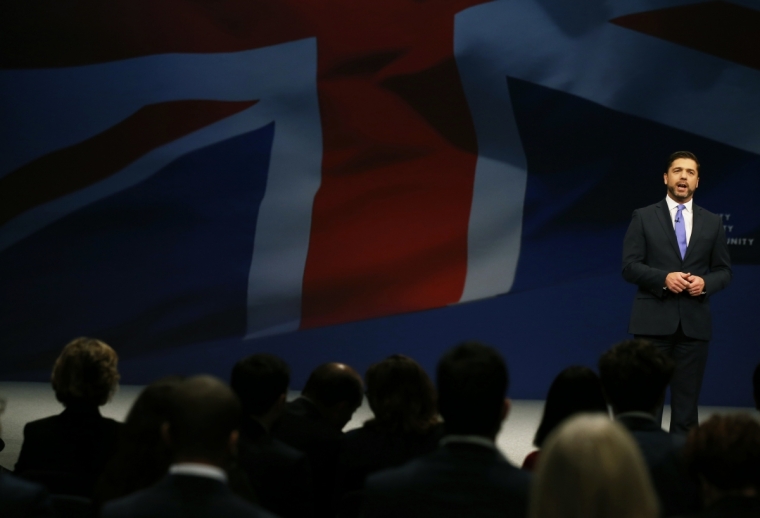Christian politician: Increasing secularism driving growth of ISIS

LONDON (Christian Examiner) – Britain's increasing secularism is driving young Muslim men into the arms of the Islamic State, a conservative Christian cabinet minister has claimed.
The Guardian reports Welsh Secretary Stephen Crabb, described as a "committed Christian" who voted against same-sex marriage in Britain, said in a speech to the Conservative Christian Fellowship that the country's continued drift away from religion in society leaves young men – in particular young Muslim men – feeling disconnected and marginalized.
The Conservative Christian Fellowship (CCF) is made up of citizens, conservative members of Parliament, attorneys and others leaders who desire to be "salt and light" in British politics.
Crabb's comments come the day after the Commission on Religion and Belief in British Public Life said schools should move toward a more "diverse" approach which sees religion through the lens of modern secularism. Times set aside for worship in schools should be repealed in favor of "inclusive times for reflection," the report from the commission said.
Crabb said during the annual Wilberforce Address to the CCF that British society's strongest weapon against extremist ideologies like those promoted by the Islamic State "will be our clarity and strength of purpose when it comes to our own values, our own beliefs."
"Because in the same way that jihadist militant groups take advantage of the ungoverned and bombed out spaces of cities and towns wracked by civil war, so they smell opportunity in what they see as societies whose values and core unifying beliefs have been hollowed-out or are contested. Hence one of the key objectives of their terror attacks in Europe is of course to sow those seeds of social, cultural and religious division," Crabb said.
"Any failure on our part to articulate clearly our core values, or any lack of willingness in defending them in a muscular and committed way within our own shores, is proof, so they believe, of our decadence and the superiority of their twisted ideology and inevitability of their ultimate victory – in this life or whatever they consider comes next."
Crabb said every month at least 180 Christians are killed around the world for their faith in Jesus Christ, but he said Christians in Britain are not facing this type of hard persecution. As a result, he said, Christians shouldn't feel intimidated about sharing their core beliefs in culture. Most, however, are not doing this because of a sort of soft persecution or a "creeping intolerance towards Christianity, and towards religion more generally, which we should be deeply concerned about."
In place of the public sharing and discussion of doctrine and belief comes the exploration of faith online in near anonymity, the private chatrooms where there is free rein to blend poison and truth. In place of the legitimate tested voices of teaching and leadership, tested in and by the community out in the open, you get shadowy teachers, people who go house to house plying their trade, or skype calls with jihadi poster boys. And rather than teachings tested over centuries against a stable and evolving orthodoxy you get warped spin-off theologies.
Crabb called this effort "a strain of hard-edged secularism" which has as its goal pushing faith into the closet, away from the public square and discussion by politicians, media personalities and even private citizens.
"It is illiberal and is fundamentally at odds with the values we proclaim provide the foundation for a free and open society," Crabb said, citing the refusal of cinemas in the United Kingdom to show an advertisement featuring the Lord's Prayer – an act even atheist Richard Dawkins found objectionable.
The effort to tamp down religious expression not only has a chilling effect on Christians in society, Crabb said. It also makes society "less resilient to the poison of the extremists."
"If you are a young Muslim growing up in East London, Cardiff or Luton the only time – the only time – you will see your faith being mentioned in mainstream British media is in connection with death and violence. That has consequences, especially when there are complex issues of identity involved," Crabb said.
"And this is where is the hard-edged secularism I described earlier actually serves to aid and abet the extremism we are all seeking to confront. Because if you push faith to the margins, then to the margins and into the shadows faith will be outworked."
"In place of the public sharing and discussion of doctrine and belief comes the exploration of faith online in near anonymity, the private chatrooms where there is free rein to blend poison and truth. In place of the legitimate tested voices of teaching and leadership, tested in and by the community out in the open, you get shadowy teachers, people who go house to house plying their trade, or skype calls with jihadi poster boys. And rather than teachings tested over centuries against a stable and evolving orthodoxy you get warped spin-off theologies."
Not surprisingly, Crabb's critics have been merciless in their outrage over his comments. Secularism, they say, is not the enemy. The enemy, they say, is those attempting to "advance Christian privilege."
One group, the National Secular Society, hit back at Crabb, calling his words "the latest misleading attack on democratic secularism."
According to the group, jihadists with the Islamic State do not evaluate how secular a society is before they target it. They also do not care about "the niceties of the constitutional arrangements in Dar al-Harb [the world of war, where Islam does not reign supreme yet]."
"The Islamic State recruits fighters from societies as assertively secular as the French republic, to outright theocracies like Pakistan and Saudi Arabia. They seek the apocalypse and a reckoning with the armies of Rome; they revile secularism and Christianity in equal measure," the secularist group said.